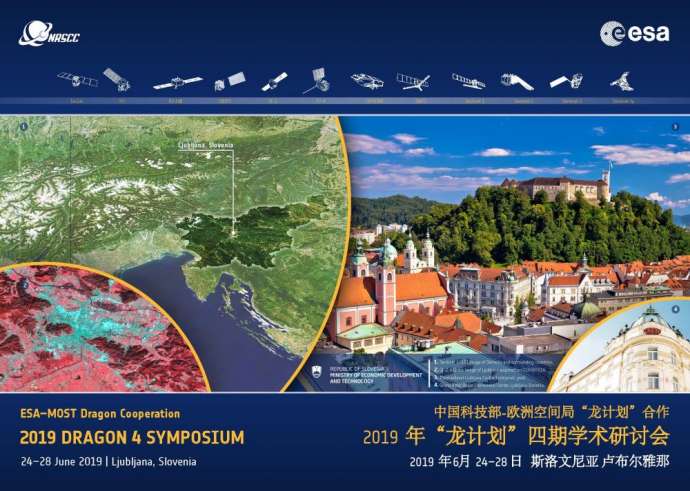STA, 26 June 2019 - An international symposium on the Dragon 4 initiative started in Slovenia on Tuesday and will last until Friday. The meeting aims to strengthen European-Chinese cooperation by developing opportunities for using space imaging for various purposes, including in agriculture and to address climate change.
The initiative by the European Space Agency (ESA), the Chinese Ministry of Science and Technology and the National Remote Sensing Center of China (NRSCC) has brought together some 600 scientists.
"Cooperation is producing results which provide prosperity for society in China as well as Europe," Karl Bergquist, who is in charge of ESA international cooperation, told the STA on the margins of the symposium.
He added that the project was focused on coming up with ways to use satellite data for better environmental monitoring, thus providing more efficient strategies for reducing carbon emissions and mitigation pollution.
The NRSCC head Wang Oi'an said that cooperation had been very beneficial for China, adding that the country provided a training program for young scientists every year and enabled them to be part of exchange programs.
The project was initiated in 2004 and includes four phases, each lasting four years. The 2016-2020 period of the fourth phase, Dragon 4, is coming to an end, so it is expected that Dragon 5 strategies and targets will be set down during the Ljubljana meeting, said Bergquist and Wang.
There will be 28 collaboration projects presented, which includes some 250 participants. The event will also feature workshops discussing atmosphere and climate, the state of oceans and coastal areas, hydrology, mitigating natural disasters consequences, ecosystems, smart cities and agriculture.
Economy Ministry State Secretary Aleš Cantarutti stressed the significance of Slovenia hosting the symposium since the country was thus improving its status within the ESA and providing networking opportunities for its institutions.
"It's important that the symposium is in Slovenia, where we're hosting more than 200 scientists, so that Slovenian institutions and companies have an opportunity to establish new connections and get acquainted with the state of the art of the global scientific sphere in this area," he told the STA.
Cantarutti added that space observation was extremely important for Slovenia, including in agriculture and hydrology, highlighting that the country is expected to launch two small satellites into orbit on 9 September.
One of them is called Nemo-HD, which will weight about 65 kg and will be able to provide high-resolution remote sensing imagery as well as capture high-quality video footages.
The other one, called Tristat, will weigh only some 5 kg and will be designed to observe Earth through short-wave infrared multispectral imaging.
Wang and Cantarutti pointed out that the significance of European-Chinese cooperation had been already highlighted by Slovenian Economy Minister Zdravko Počivalšek and his Chinese counterpart Wang Zhigang, when the pair met in April during Počivalšek's visit to China.
The state secretary added that the ministry would draw up a pair of laws on space activity this year and start developing a national space strategy as well as prepare for renewing associated membership of the ESA The ministry expects Slovenia to become a full-fledged member of the agency in 2021.






